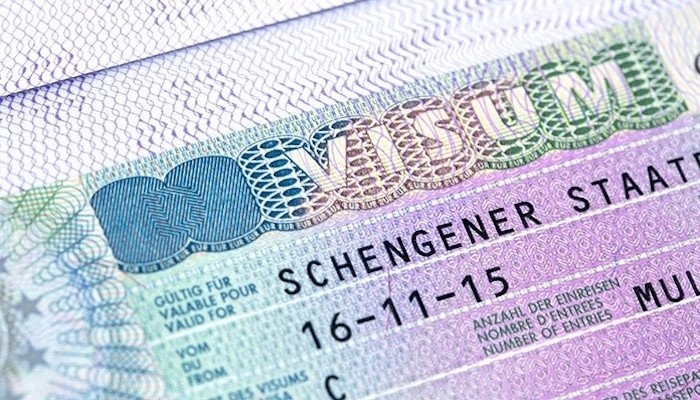Serious problems faced by Turks in their business trips to European countries, including long waiting periods for visa appointments, the increasing rate of rejection of Schengen visa applications and the short duration of the visas obtained, aren’t political or exclusive to Turks, Nikolaus Meyer-Landrut, the ambassador and head of the EU Delegation to Turkey, told Deutsche Welle Turkish service on Thursday.
According to data from schengenvisainfo.com, 16.5 percent of applicants from Turkey last year were denied a visa, up from 12.5 percent in 2020. Schengen rejections were only 4 percent of the total in 2015 and started increasing in 2017 for Turks, it shows.
The growing number of people who are unable to take their business trips to the Schengen area due to visa-related problems and the fact that even some exporters are unable to obtain visas for the business fairs they had planned to attend also have been causing panic in the Turkish business world.
Turkish Foreign Minister Mevlüt Çavuşoğlu said this week he believed the lengthy processing times and an increase observed in Schengen visa rejection rates were the results of a deliberate effort to put President Recep Tayyip Erdoğan in a difficult position ahead of tight elections next year, an accusation the European Union denies.
Meyer-Landrut told DW that the problems related to Schengen visa applications weren’t exclusive to Turkey or “a political issue,” adding that Turks’ 16 percent visa rejection rate for 2021 was only “slightly above the world average” of 13-14 percent.
According to the statistics provided by the ambassador, Turkey is among the top three countries in the world with the highest number of Schengen applications, with 900,000 applications in 2019, 230,000 in 2020 and nearly 270,000 in 2021.
When asked what can be done to reduce long waiting periods and other difficulties faced during the Schengen visa application process, Meyer-Landrut said one should make timely submissions that are of good quality since most of the applications were rejected due to being incomplete and potentially fraudulent.
Meyer-Landrut also stated that a positive trend had been observed regarding Schengen visas for Turkey in recent years and that it was the increase in the rate of multiple-entry visas issued for Turks.
“We see that this rate increased from 58 percent in 2014 to 82 percent in 2021. This rate … is considerably higher than the world rate of 70 percent,” he said.
Regarding visa-free travel, the ambassador said they want to continue discussions on the subject but reminded that at this stage, no progress has been made regarding the remaining criteria.
Turkey has fulfilled 66 of the 72 criteria the EU proposed for them so far.
Among the remaining issues are reassessing legislation on terrorism in line with EU standards, complying with the same standards on personal data legislation, ensuring judicial cooperation with EU member states on criminal matters, finalizing an operational agreement with Europol and continuing to fight corruption.
The cost of a Schengen visa application — amounting to some 100 euros, or a third of Turkey’s minimum wage — is not refundable whether a visa is issued or not. On top of the visa fees are many required documents for the visa, such as a round trip reservation and itinerary, travel insurance policy, proof of accommodation, proof of financial means and more.
Although the documents required may change minimally depending on the member state, they are for the most part identical.

